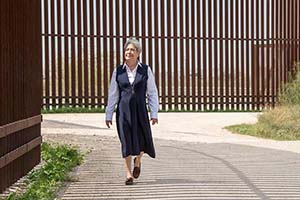
Norman C. Francis, who would one day become the beloved, influential president of Xavier University of Louisiana, arrived as a freshman at this historically black and Catholic university when he was 17.
Born in 1931, Francis, along with his three sisters and brother, grew up 150 miles from New Orleans in Lafayette, Louisiana. They attended Catholic schools and parishes at a time when the United States Supreme Court — based on a legal challenge to Louisiana law regarding “separate but equal” — upheld racial segregation.
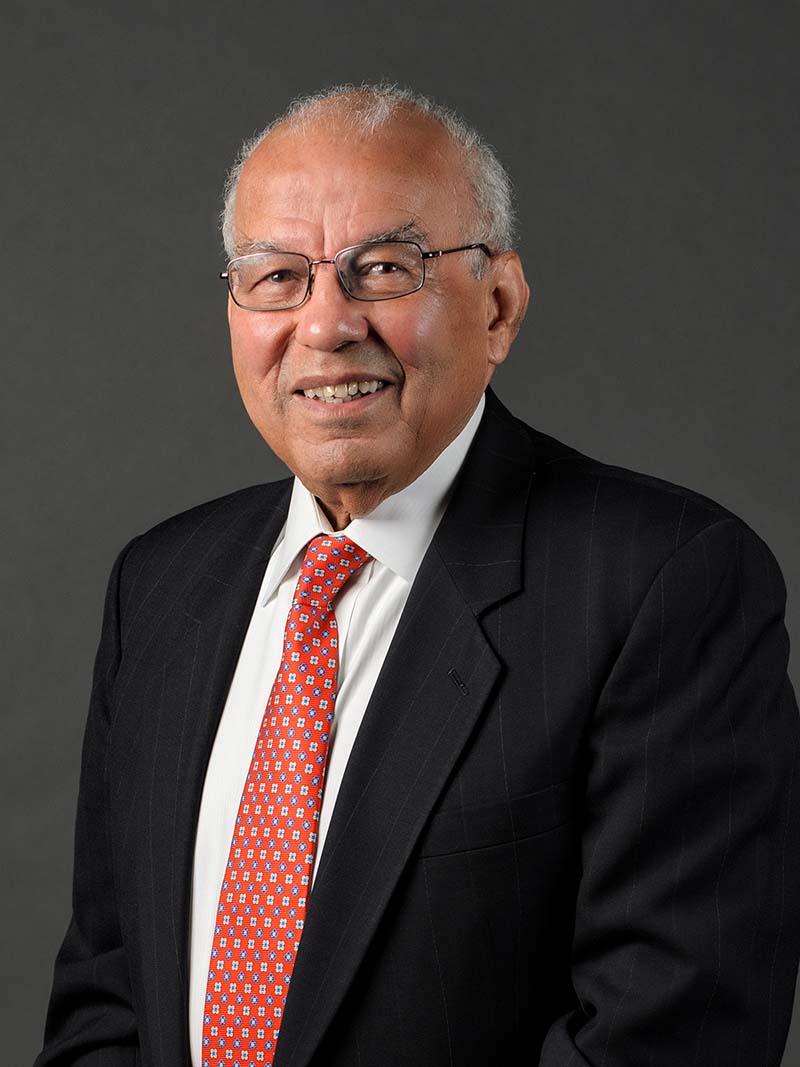
“I feel obligated to tell the story as I saw and lived it,” Francis said, reflecting on the struggle for racial equality to which he has borne witness — and in which he has been a powerful agent of change.
On May 19 (Sunday), Francis will receive the University of Notre Dame’s 2019 Laetare Medal — the oldest and most prestigious honor given to American Catholics — at Notre Dame’s 174th University Commencement Ceremony.
Francis, now 88, remembers when many black Catholics could not even enter a church for Mass, and those allowed to enter were made to sit in the last pews and receive communion last.
“When historians write about integration, the Catholic Church is going to be mentioned,” Francis said. “That story will be told, and pray God it will be told alongside the work done by places like Xavier University, but segregation is in the annals of the Church, like so many institutions in America.”
St. Katharine Drexel founded Xavier in 1925. Heir to a banking fortune, St. Katharine also founded the Sisters of the Blessed Sacrament and used her entire inheritance to advance racial equality for African-Americans and Native Americans, primarily through education.
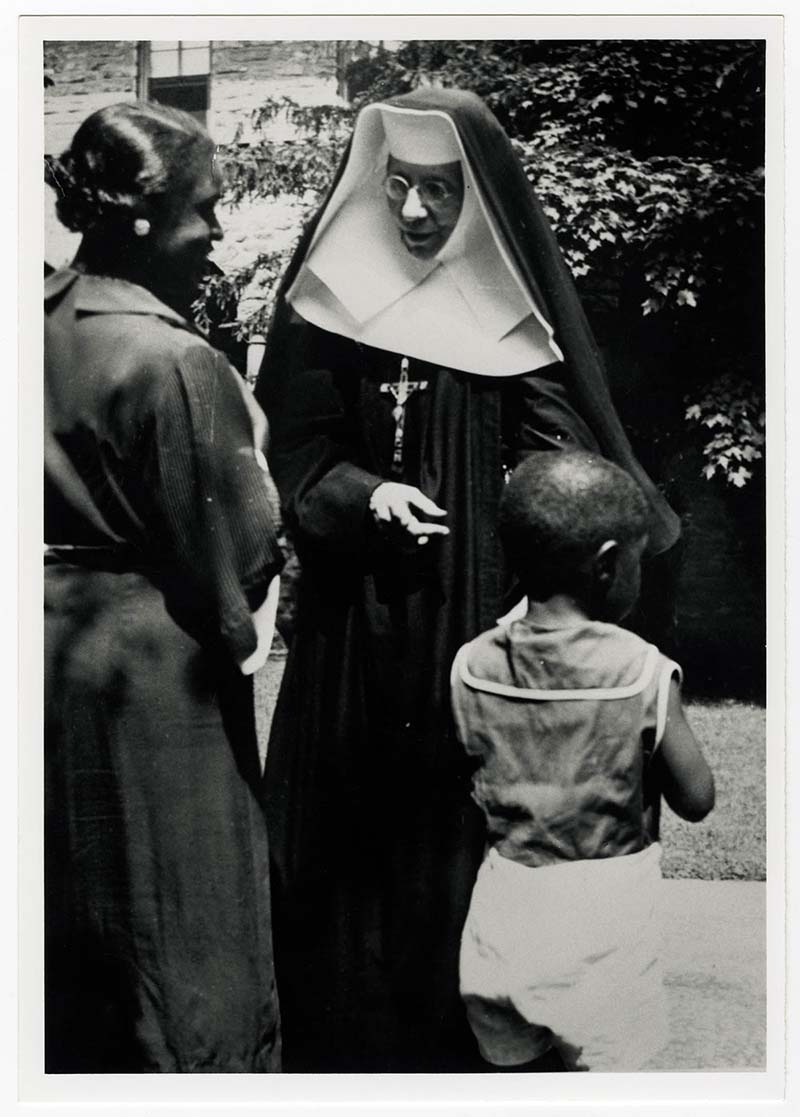
St. Katharine’s example and vision animate Francis’ legacy.
His early education in Lafayette took place in Catholic schools run by Spiritan priests and Sisters of the Blessed Sacrament — and all of these teachers were trained and supported by St. Katharine’s philanthropy. Despite her wealth, St. Katharine modeled solidarity with the poor and the vulnerable, and Francis recalled that she would sit in the train car designated for African-Americans.
“Nuns could sit where they wanted, but she brought her lunch on that train and sat in the segregated car,” he said. “She was an exhibit of poverty, even as one of the wealthiest people in the South.”
In 1952, Francis became the first African-American admitted to Loyola University Law School in New Orleans. Referencing Frederick Douglass and W.E.B. Dubois, Francis said, “Somebody had to break the color line.” Francis was not the only member of his family to push color lines. His older brother, the Most Reverend Joseph Francis, auxiliary bishop of Newark, became the fourth African-American to be elevated to the bishopric in the United States.
“What I, my brother, sisters and all of my friends, went through — we have to honor that memory, and also remember that what made the difference in our lives was the education we received from American Catholic institutions like Xavier and Loyola,” he said. “Education is the road out of poverty; there is no doubt about that.”
Francis married Blanche MacDonald, also a Xavier graduate, in 1955. The couple had 6 children and 11 grandchildren, and they celebrated their 60th wedding anniversary in 2015; Blanche passed away later that year.
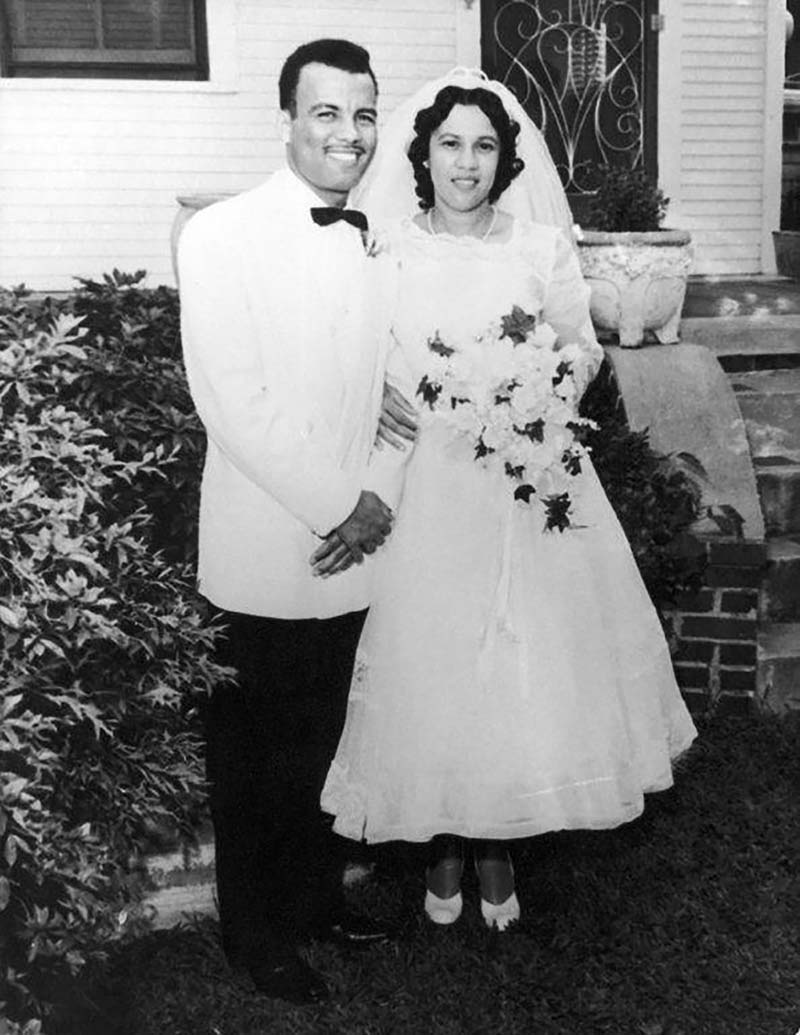
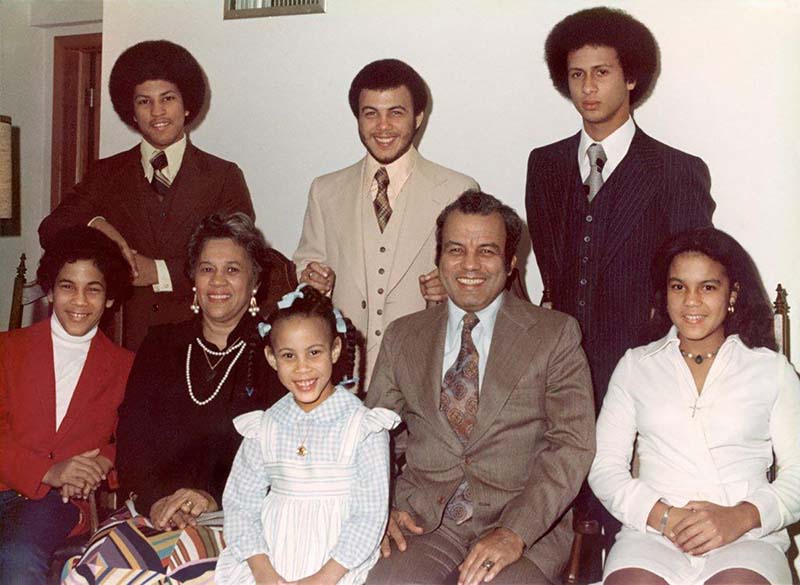
“I graduated law school on a Saturday, got married on a Monday, and I was drafted into the Army before I could even step into a court of law,” Francis said.
While serving in the U.S. Army, Francis was stationed in Fort Knox, Kentucky, and Frankfurt, Germany. After his honorable discharge, he worked as counsel for the New Orleans law firm Collins, Douglas and Elie, often representing activists who were fighting segregation.
In the end, Francis decided to forgo a promising legal practice for a career in higher education and became dean of men at Xavier in 1957.
“It didn’t take long for me to see that I could do more good educating young African-Americans, and when I look at the stats and where we are nationally, I never regretted it.”
Francis accepted the offer to become the first lay African-American president of Xavier on April 4, 1968 — the same day Rev. Martin Luther King Jr. was assassinated.
During Francis’ 47-year tenure as president, Xavier’s enrollment nearly tripled, the endowment grew eightfold and the university became the leading producer of African-American undergraduates who complete medical school. Xavier also ranks first nationally in the number of African-American students earning undergraduate degrees in biology and life sciences, chemistry, physics and pharmacy.
“I do not miss an opportunity to say that I did not build Xavier; I was part of Katharine Drexel’s mission to provide a quality education for all,” Francis said. “All the people I worked with were part of this plan and mission, which was not only honorable, but was totally necessary when you look back at what the United States was at the time.”
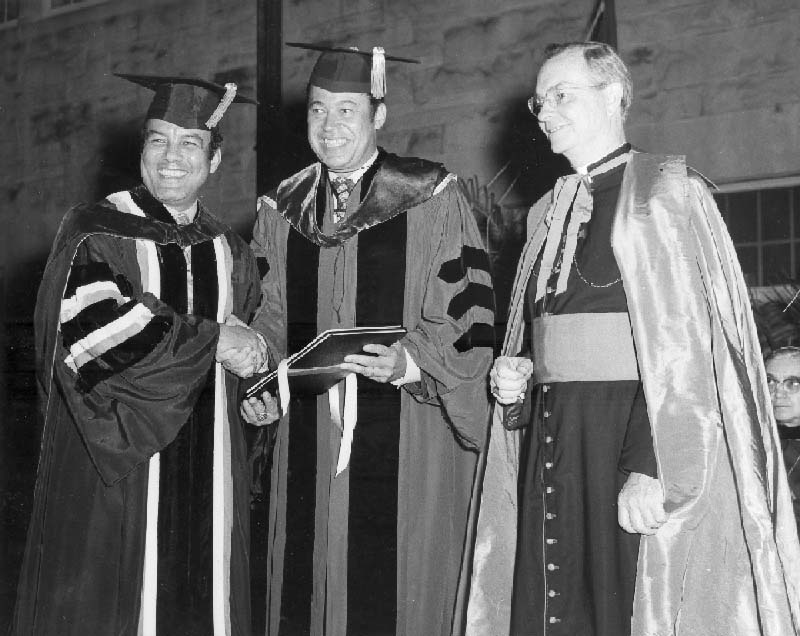
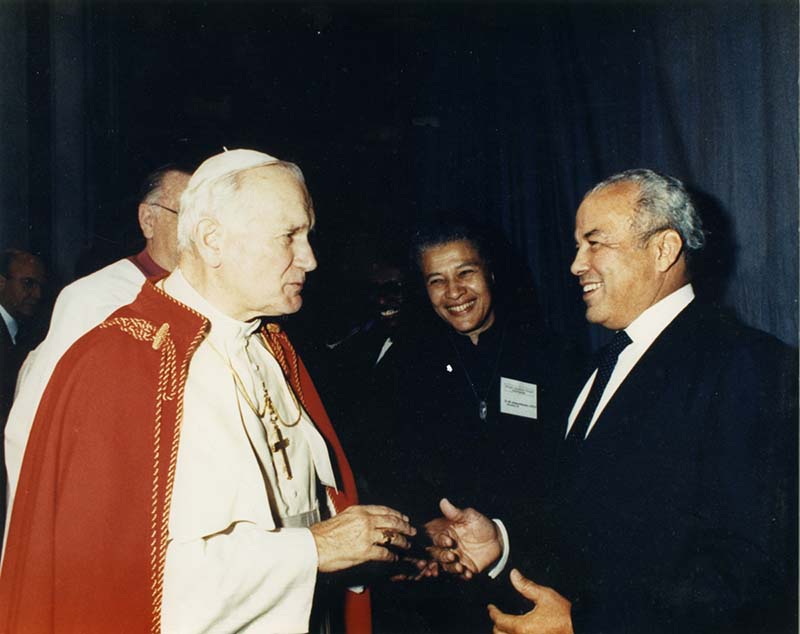
While solidifying Xavier’s reputation of academic excellence, Francis gained renown as a civic leader and an exceptional statesman. He served in advisory roles to eight United States presidents on education and civil rights issues and has served on 54 boards and commissions.
Following in St. Katharine’s footsteps, Francis has also had the ear of multiple popes.
Francis recalled: “Katharine Drexel once met Pope Leo XIII and asked him ‘Your Excellency, when is the Catholic Church going to do something about segregation and poverty and all the other ways you can denounce a human being? When is the Church going to do that?’”
Francis himself became a member of the Vatican’s Pontifical Council for Justice and Peace, a member of the Board of Trustees at the Catholic University of America and a member of the board of directors of the National Catholic Conference for Interracial Justice.
In 2006, President George W. Bush honored Francis with the nation’s highest civilian award, the Presidential Medal of Freedom. Francis received an honorary doctor of laws degree from Notre Dame in 1988 for his commitment to education and civil rights. The University also awarded him a rare second honorary doctorate in 2006 for his tireless work rebuilding his own institution and for serving as chair of the Louisiana Recovery Authority after Hurricane Katrina.
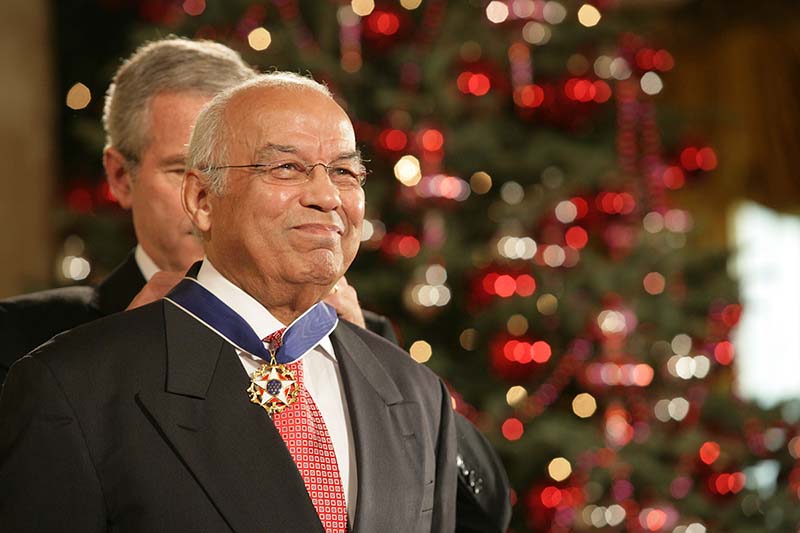
Like many New Orleans residents, Francis and his wife lost their home to Katrina when the levee broke. Despite this personal loss, he gave himself to the recovery of Xavier and to the broader region that had been ravaged by the hurricane.
“Xavier had 5 feet of water everywhere,” Francis said. “I believe St. Katharine Drexel gave us a miracle and made it possible to come back to our institution in only four and a half months.”
Asked about his concerns and hopes for the future, Francis said he takes great courage from the youth who are participating in today’s social justice movements for racial equality and voting participation, especially in view of an uptick in laws that require a photo ID in order to vote — laws that tend to target people of color.
He added, with crackles of concern in his voice: “I am also old enough to have seen this movie before. 1960-61. What am I seeing now? I’m seeing a replay of that movie — only thing is, the words are new code words, but they’re not words that look well for this country. We must learn and live out the fact that we are all in this together.”
